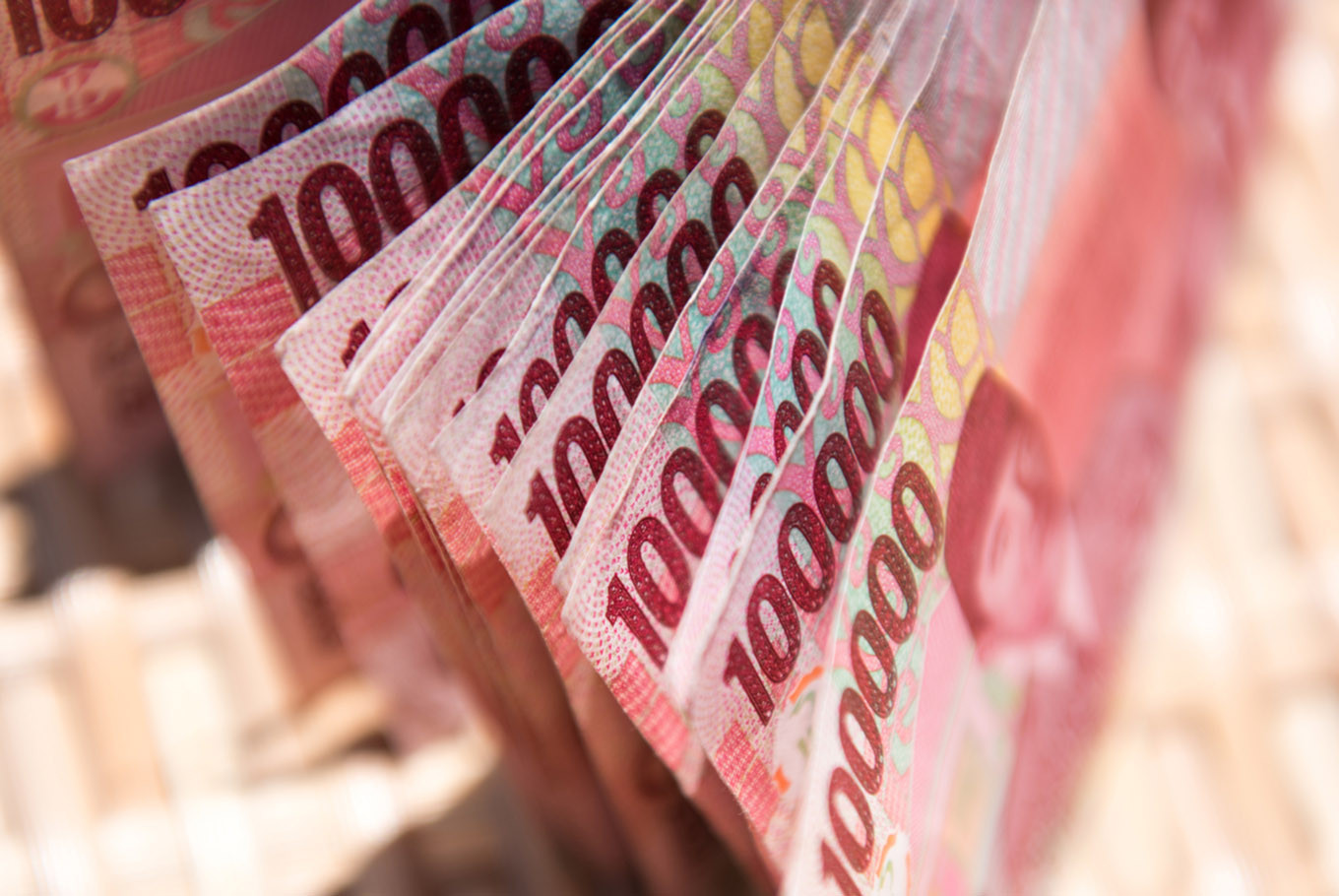Popular Reads
Top Results
Can't find what you're looking for?
View all search resultsPopular Reads
Top Results
Can't find what you're looking for?
View all search resultsIndonesia plans to inject $2.5b into SOEs next year to stimulate economy, resolve Jiwasraya scandal
Change text size
Gift Premium Articles
to Anyone
T
he government has proposed providing Rp 37.38 trillion (US$2.5 billion) in capital injections for state-owned enterprises (SOEs) next year, some of which will be used to resolve the investment mismanagement scandal involving state insurer PT Asuransi Jiwasraya.
During a meeting with House Commission XI overseeing financial affairs on Tuesday, Finance Minister Sri Mulyani Indrawati said the capital injections were part of the government’s investment plan for next year.
“[The capital injections] will be used to finance the development of the Sumatra toll road, tourism development and [to fund] the opening of Batang industrial area, among other projects,” she told lawmakers, referring to the Trans Sumatra toll road mega project and the development of the new industrial zone in Central Java.
The government plans to inject funds into eight SOEs, including Rp 20 trillion for financing firm Bahana Pembinaan Usaha Indonesia (BPUI), Rp 2.25 trillion for secondary mortgage market company PT Sarana Multigriya Finansial, Rp 6.2 trillion for construction company PT Hutama Karya and Rp 5 trillion for electricity giant PLN.
“The injection for BPUI is related to the management of the Jiwasraya problem,” she said.
The Central Jakarta District Court is currently overseeing a trial regarding the scandal involving Jiwasraya. The allegation of mismanagement came after Jiwasraya was unable to pay its policyholders’ claims worth Rp 18 trillion as it invested most of its premium revenue from its product JS Saving Plan into so-called pump-and-dump stocks.
In July, the SOEs Ministry announced a plan to restructure Jiwasraya’s policies and carry them over to a new company. BPUI is expected to establish a new life insurance company, PT Nusantara Life, which will then hold all of Jiwasraya’s restructured policies, according to Deputy SOEs Minister Kartika “Tiko” Wirjoatmodjo.
Furthermore, the government will also provide a capital injection of Rp 470 billion for the Indonesia Tourism Development Corporation, which is in charge of developing tourist facilities in Mandalika, West Nusa Tenggara.
It will also inject Rp 1.2 trillion into port operator PT Pelindo III, Rp 1.28 trillion into ship maker PT Pal Indonesia and Rp 977 billion into PT Kawasan Industri Wijayakusuma.
The allocated budget for capital injections next year is lower than this year’s roughly Rp 51 trillion, as the government’s budget is focused on stimulating a recovery of the pandemic-battered economy.
Initially, the government allocated Rp 31.48 trillion for state capital injections this year, to be disbursed to eight SOEs, before earmarking an additional Rp 20.5 trillion, as part of the COVID-19 stimulus package of Rp 695.2 trillion.
The decision to allocate additional funds is intended to help cushion the impacts of the pandemic on state-owned companies. For example, national flag carrier Garuda Indonesia logged $712.73 million in losses in the first half of the year, compared to the $24.11 million profit it posted in the same period last year, as the COVID-19 outbreak dealt a crushing blow to the aviation industry.
Meanwhile, state oil and gas firm Pertamina also suffered a $767.9 million loss in the January to June period this year, after booking a profit of $659.96 million in the same period last year.
Indonesia’s economy contracted 5.32 percent in the second quarter this year and is expected to shrink 1.1 percent at worst this year or grow by 0.2 percent at best, according to the government’s estimate.
Read also: State firm dividends rise as govt scrambles to rescue economy
Dividend payments made by SOEs to the government have far exceeded state capital injections, according to SOEs Minister Erick Thohir, who claimed the government had received Rp 255 trillion in dividends from SOEs since 2015 while injecting Rp 118 trillion into SOEs during the same period.
The government has collected more than Rp 40 trillion in dividends from five major SOEs alone this year, including from Pertamina.
“Capital injections are usually considered bad [decisions], but if we look at the dividends and tax income from SOEs, the return is much greater,” he said on Monday, after a meeting with House Commission VI overseeing trade, industry and SOEs, as reported by kompas.com.
The government is also considering injecting funds into state pharmaceutical holding company PT Bio Farma to strengthen the healthcare response to the coronavirus pandemic, Erick said on Monday.
Bio Farma is currently developing a COVID-19 vaccine candidate in cooperation with Sinovac Biotech of China.
Center of Reform on Economics (CORE) Indonesia research director Piter Abdullah told The Jakarta Post that the state capital injections for SOEs would help support the economy amid the uncertainty of the COVID-19 pandemic.
However, he expressed concern about the government’s handling of the Jiwasraya problem.
“The government’s failure to solve the Jiwasraya problem immediately has not only made the problem bigger but also increased the cost,” Piter said. “We think the government should spend more money and take the losses to solve the problems entirely.”










